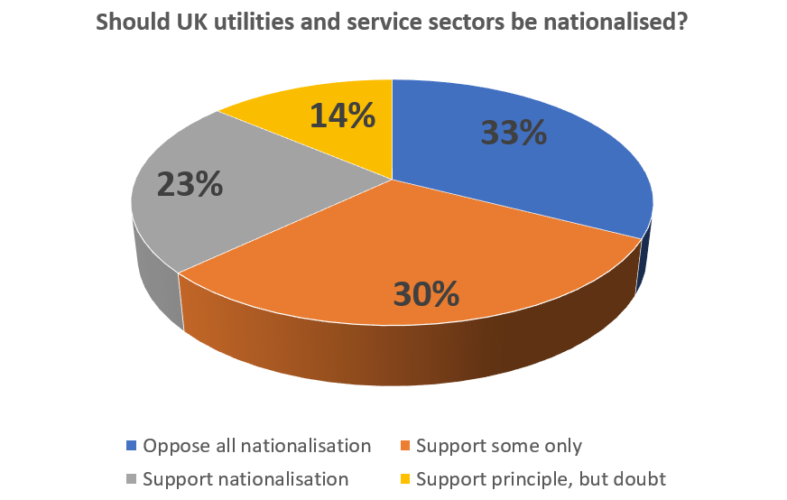Last week’s poll: nationalisation of services and utilities
Last week we asked our readers if they believed major engineering-related industries in the UK should be nationalised.


The Labour Party’s manifesto for the upcoming general election includes pledges to take several industries into public ownership; which would represent the largest nationalisation programme since the 1970s. Although in past decades many industries, including car manufacturers, were state-owned, the current manifesto confines itself to service industries and utilities. Jeremy Corbyn’s party proposes nationalising the Royal Mail, rail-operating companies, energy supply networks and water and sewerage companies, plus the eye-catching pledge of creating a state-owned broadband Internet supplier with free full-fibre coverage for all by 2030 by nationalising BT Openreach.
_____________________________________________________________________
_____________________________________________________________________
As all of these touch on engineering to some degree, we wanted to gauge readers of The Engineer on their thoughts. A third of respondents (33 per cent) oppose any form of nationalisation. While this was the most popular option, a total of 53 per cent - spread across two options - backed some form of nationalisation, with 23 per cent fully behind it and 30 per cent supporting some sectors or services coming back under public ownership. Around one in seven (14 per cent) said they supported nationalisation in principle but had doubts over its capacity for success.
Register now to continue reading
Thanks for visiting The Engineer. You’ve now reached your monthly limit of news stories. Register for free to unlock unlimited access to all of our news coverage, as well as premium content including opinion, in-depth features and special reports.
Benefits of registering
-
In-depth insights and coverage of key emerging trends
-
Unrestricted access to special reports throughout the year
-
Daily technology news delivered straight to your inbox










Water Sector Talent Exodus Could Cripple The Sector
Maybe if things are essential for the running of a country and we want to pay a fair price we should be running these utilities on a not for profit...